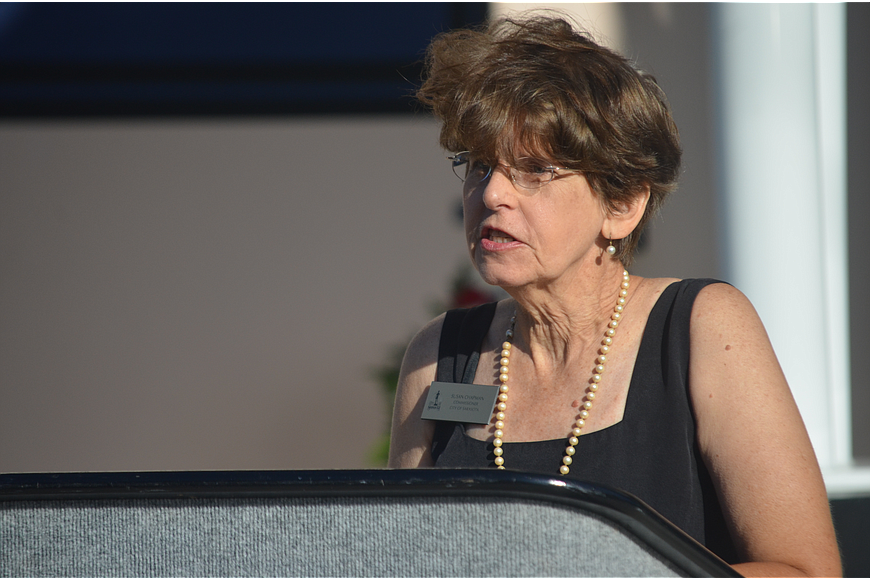- May 1, 2024
-
-
Loading

Loading

Even after winning an initial victory in court, City Commissioner Susan Chapman’s sunshine lawsuit could cost the city another $50,000 before a judge issues a ruling on an appeal.
Citizens for Sunshine is working through the Second District Court of Appeals in Lakeland in its challenge of Judge Brian Iten’s July 8 ruling, which absolved Chapman of violating Florida’s open government laws. The organization will submit a formal brief to the court Sept. 20 in support of the action, said City Attorney Robert Fournier.
The appeal will cost the city between $35,000 and $50,000, which is between 10% and 15% of the total cost of the suit so far, because there are no depositions or discovery actions. The city has spent roughly $353,000 on the sunshine lawsuit since 2013.
But the municipality may ultimately be awarded those attorney fees, and a ruling by the court of appeals in favor of Chapman could set a precedent allowing more than one commissioner to attend non-noticed meetings, such as neighborhood town halls, albeit passively. Currently, the city posts a notice for a meeting that more than one commissioner attends if it might include a topic foreseeable on a future City Commission agenda.
Citizens, represented by attorney Andrea Mogensen and assisted by legal consultant Michael Barfield, has argued Chapman violated state law by attending an Oct. 10, 2013, meeting of downtown merchants. Commissioner Suzanne Atwell attended the same meeting, held at Tsunami Sushi & Hibachi Grill, and settled her portion of the suit quickly after it was filed in 2013.
Iten in the ruling described Chapman’s attendance as “passive,” concluding she and Atwell did not discuss the issue of homelessness. He determined that the gathering did not constitute a meeting under the definition provided in the Florida Constitution.
“To find otherwise would lead to an absurd result, which is what a court is compelled to avoid when applying the law,” Iten wrote.
“I think the circuit court endorsed what I would call the traditional or conventional view of the Sunshine Law that’s been around for years,” said Fournier during an address to the City Commission last week. That view is that city doesn’t has to notice a meeting as long as there is no deliberation amongst commissioners.
Once Citizens files its legal briefs with the court of appeals, the city will file its reply in mid-October. Mogensen and Barfield then have 20 days to reply to the city’s arguments.
“I think it’s highly likely (the judge) would schedule an oral argument,” Fournier said. “That can happen anywhere from a few weeks to a few months after the briefs are in.”
Iten has scheduled a Nov. 28 hearing to consider a request from Chapman’s counsel Thomas Shults for roughly $18,200 in attorneys fees related to the cost of court reporters and other administrative costs. The city is waiting until the appeal concludes, which Fournier is confident will happen before the middle of 2017, to go after the larger amount.
“Rather than wade into that right now, let’s just focus on the appeal,” Fournier said.